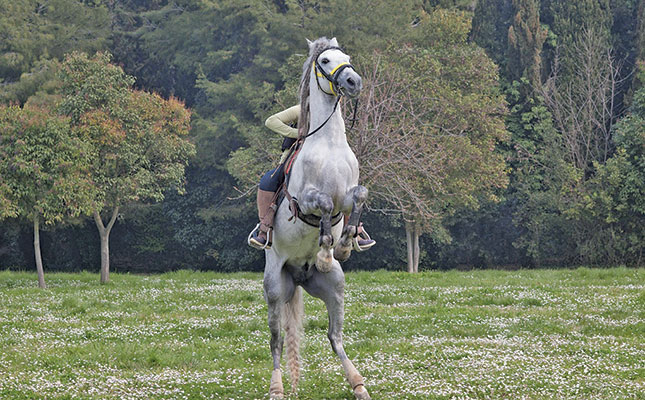
Photo: Pixabay
Since the advent of the COVID- 19 pandemic, most of us have had first-hand experience of the impact that a stressful environment can have on our lives. Research into the effects of stress on the health and performance of horses has also recently attracted attention.
There are four main effects of stress on a horse. The first is physiological; in a performance horse, this usually manifests as colic and gastric ulcers, while in a broodmare it can lower fertility due to resorption of the foal in early pregnancy.
The second is behavioural. Indicators of this are fairly well recognised and include weaving, windsucking and stall-kicking. When under saddle, particularly when in strange surroundings such as shows or races, a stressed horse can suddenly panic, buck, rear or bolt.
This can result in severe injury to the handler, rider or the horse itself. The third effect of stress on a horse is lowered concentration during showjumping or other events, which can be the result of a high level of adrenalin brought on by the stress.
Finally, stress can lead to stiffness and pain as a result of the muscle contractions inherent in a state of chronic anxiety.
Periods of stress are directly related to high levels of cortisol, which can be measured using blood tests. Some breeds, such as Thoroughbreds, are more easily stressed than others.
How to avoid stress
A horse’s living conditions and the way it is fed and exercised are key factors influencing stress. Routine feeding at specific hours is a good way to lower a horse’s stress levels.
Dietary supplements such as Epsom salts, tryptophan, thiamine (vitamin B1), and certain herbal extracts (for example, chamomile and lemon balm) can also help. These can be purchased at feed stores and added to the horse’s rations.
High levels of sugar and concentrates such as maize and oats can also make a horse highly excitable, particularly if it is not getting enough exercise. If a show horse needs to bulk up in a hurry, split the concentrate into several smaller servings to reduce this effect.
Relaxation techniques you can use on an uptight horse include grooming and massage. Gel-based pheromones can also be wiped on and around the nostrils to help the animal relax.
Exercise and company
A horse should never be forced to simply stand around all day in a stable; it should be let out into a paddock and be lunged or ridden for at least two hours a day.
Remember, too, that horses are herd animals, and isolation can be highly stressful for them. When stabling a horse, leave the top part of the door open so that it can see the other horses. When keeping it alone in a paddock, ensure that there is another horse in a nearby paddock for company, even if they make threatening gestures towards each other.
If you have a nervous or excitable horse, use massage and training techniques specifically designed to make it feel more at ease.
As in the case of many human athletes, sport horses are often anxious and highly strung. Communicate with your horse through touch, posture and voice to calm it and build trust with it. Move slowly and predictably, and establish routines.
Dr Mac is an academic, a practising equine veterinarian, and a stud owner.








